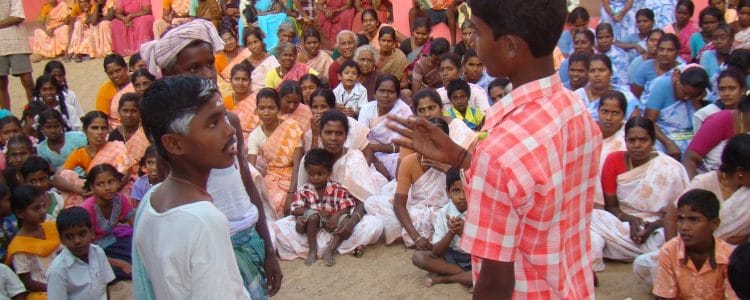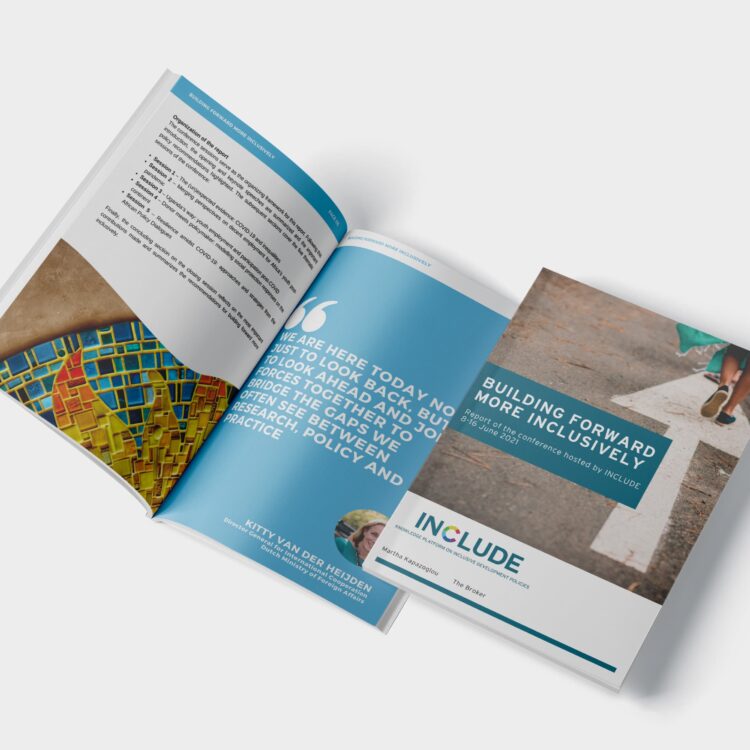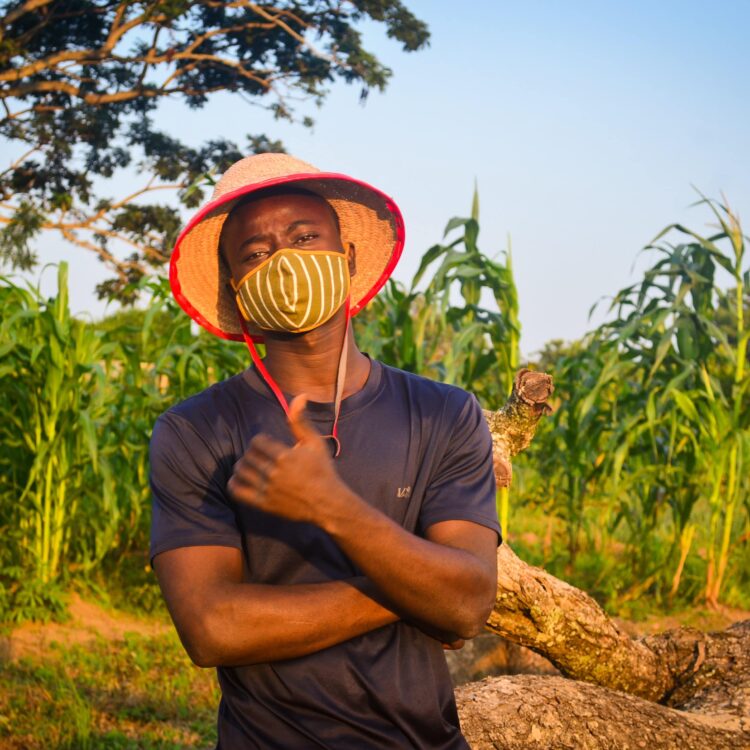
The latest blog of the research programme ‘New roles of CSOs for inclusive development’, this time by Farhat Naz and Margit van Wessel from the research group Civil society advocacy collaborations in India. The research programme investigates the assumptions, solutions and problems underlying the civil society policy framework ‘Dialogue & Dissent’ of the Dutch Ministry of Foreign Affairs.
In India, when disasters strike, such as floods, droughts, cyclones and earthquakes, civil society organizations (CSOs) play a vital role. They contribute to relief, recovery, response and rehabilitation. However, CSOs are also involved in disaster risk reduction, developing approaches and tools, training, raising awareness and advocating to influence policy.
These organizations agree that reducing the risks of disaster is important, but they are otherwise diverse in terms of their organizational background, scope and focus. They could be classified as humanitarian, faith-based, secular, technical, rights-based and environmental organizations, to name a few. In addition, they do not all work at the same level. Some work at the grassroots, while other are active at state or national levels. In their focus, they may centre on the degradation of eco-systems, the importance of building resilient communities, or the creation of housing that can survive floods or storms, among other things.
We thus see a wide range of diversity between CSOs working on disaster risk reduction. However, there has been little attention paid to such diversity in the literature on civil society. When diversity is discussed, it is mostly to point out the problems that diversity may cause: research says that differences in perspective get in the way of developing shared understandings or coordinating action. On the other hand, in the literature on governance it is usually taken as a given that collaboration is needed between stakeholders and organizations. CSOs represent different relevant perspectives and have different interests and knowledges. They also contribute different key parts of the solution to an issue, and, therefore, are interdependent. Such complementarities have not yet been explored in the literature on civil society. What little attention has been paid to CSO is mostly to the complementarity between Northern and Southern CSOs, showing, for example, how Southern CSOs’ knowledge ‘from-the-ground’ can complement the access of Northern CSOs to international political arenas, where that knowledge can be put to use for advocacy. In our view, such a linear perspective does not do justice to the diversity of CSOs and the roles they play, or to the Southern contexts and the domestic orientations they have.

Photo by Kalvi Kendra
In our research, we explore the value of civil society’s diversity for disaster risk reduction, from the perspectives of the Southern organizations involved. For the research, we travelled across India interviewing a range of different CSOs about this, asking: who else matters for your work? Who do you like to collaborate with, and why? It turned out that many organizations see a wide range of other CSOs as complementary to their own in ways that encourage collaboration, or make collaboration helpful in achieving their goals. In our research, we analyse the nature of these complementarities. We do this in order to obtain an overview of the different ways in which different types of organizations complement each other, and how that helps their disaster risk reduction work. Through this effort, we hope to shed light on the nature and value of diversity among CSOs, so that this diversity can be considered and taken advantage of in CSO collaborations.
One example we highlight here is an international Christian humanitarian CSO that is widely present throughout India. This CSO works through 174 church-affiliated social service organizations in India, which give it good reach at the village, district and state levels. One of the Indian states where this CSO works is Bihar. Due to climate change, disaster risk in India is increasingly related to water. Bihar is India’s most flood-prone state. Approximately 76% of the population of northern Bihar live under the recurring threat of flood devastation, impacting mostly on poor local farming communities. Floods in Bihar cause devastation to the economy and bring misery into the life of the people.
Through our research we learnt that in the view and experience of this organization’s staff, a number of complementarities exist between their organization and environmental and technical CSOs working in Bihar, fostering collaboration. For example, because of its wide network, this organization is able to mobilize many people to spread knowledge produced by other international and national CSOs, such as knowledge on ecosystem restoration and climate change adaptation. This complementarity in collaboration helps to spread awareness of the importance of reducing disaster risk, creates capacity and motivates local communities in Bihar that are vulnerable to disaster risk to act. This contributes to the promotion of locally important changes, such as the development of early warning systems, contingency planning based on forecasts, raising hand pumps to higher levels to secure safe drinking water in case of floods, and better ecosystems management.




